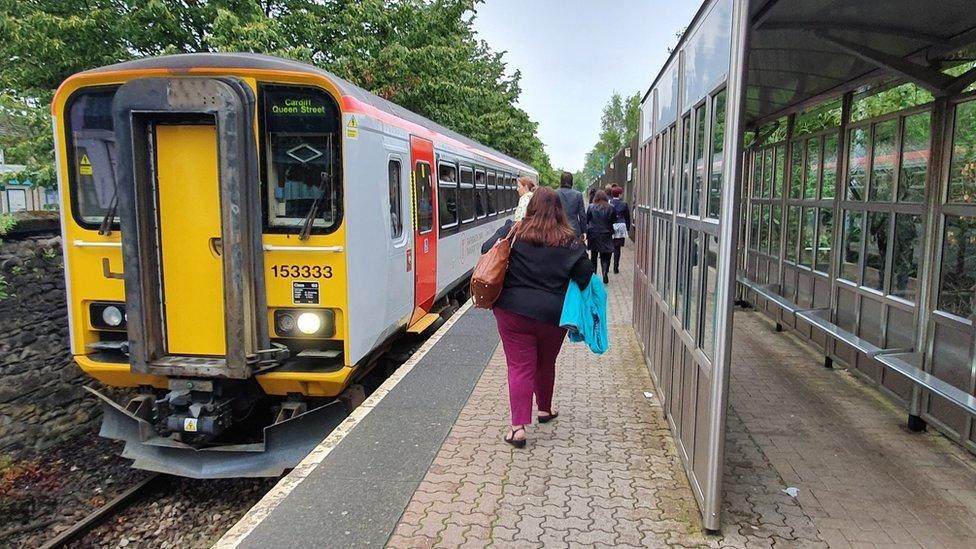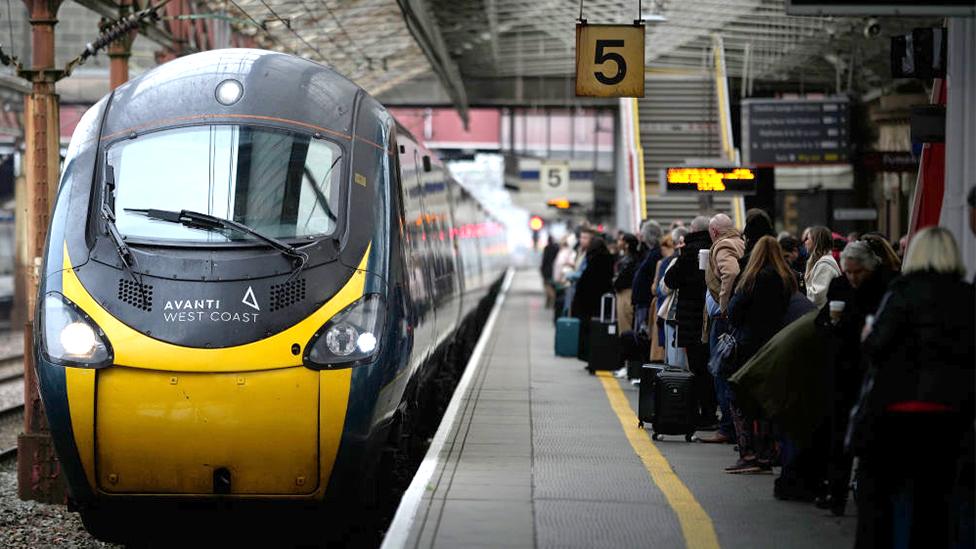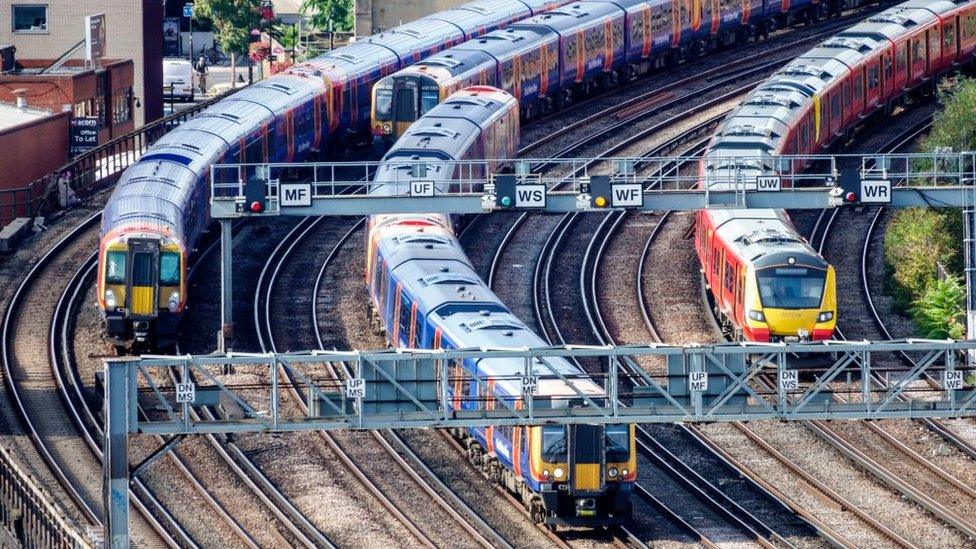Train fares: Wales' passengers face 5.9% price rise
- Published

The Transport for Wales price rises kick in on 5 March
Transport for Wales train passengers face a "significant increase" in fares, the Welsh government has said.
Ministers in Cardiff have capped fare rises at 5.9% for commuter season tickets, some off-peak returns and some anytime tickets, as of 5 March.
The rise is in line with increases planned for services governed by the UK government.
Deputy Transport Minister Lee Waters said the Welsh government had "tried to keep the increase as low as possible".
Plaid Cymru said the rise was one of the highest on record and would put more pressure on "struggling households".
The announcement affects 45% of rail fares - known as regulated fares, external - but not advance tickets.
It comes after Mr Waters warned of a "skeleton service" in the bus network because the Welsh government was unable to continue Covid-era funding beyond the summer.
He said that fares had previously increased each year in line with the rate of inflation, but "instead of fares increasing by 12.3% in 2023, the increase will now be capped at 5.9%".
Mr Waters blamed the UK government - which provides the bulk of the Welsh government's funding - for why he could not go further.
He said the budget settlement from Westminster and a reduced income from passengers since the pandemic meant "difficult choices" in order to maintain current levels of train services.
"We understand this is a significant increase for passengers in the current cost of living crisis but we have tried to keep the increase as low as possible," he added.
The UK government spokesman said Wales had received its "highest-ever financial settlement and is well funded to deliver its devolved responsibilities".
Plaid Cymru spokeswoman for transport, Delyth Jewell, said: "The Scottish government is piloting a six-month scheme to suspend peak fares. It is time that the Welsh government tried something similar rather than following the English example."
- Published22 December 2022

- Published1 March 2022

